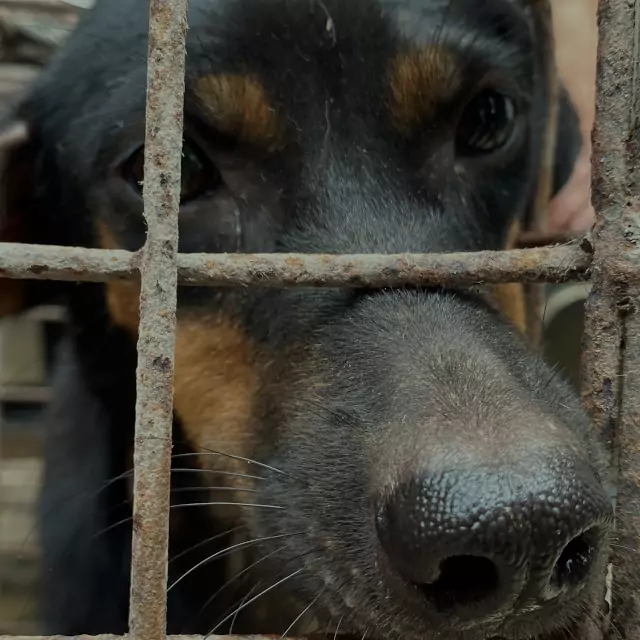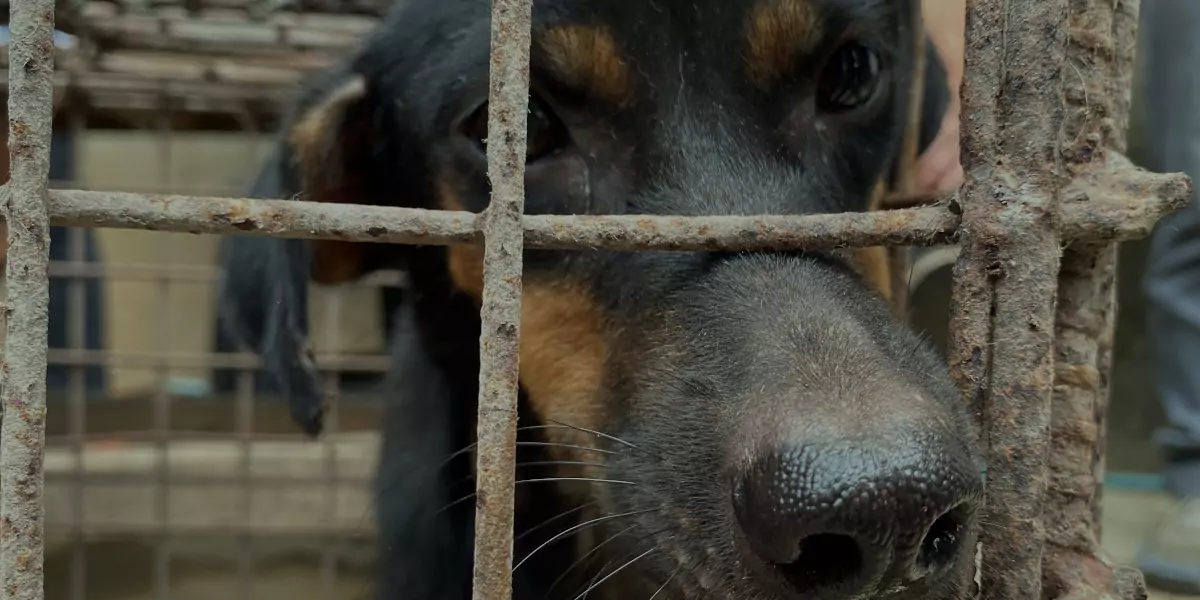About the trade in Asia
There are a number of places in Asia - particularly China, Viet Nam and Philippines - where dogs are eaten as food. In Viet Nam, cat meat is also consumed. Unlike other types of meat industries, this trade is rarely regulated. This has resulted in animal abuse at the hands of organised criminal groups.
At the height of the illegal cross-border trade in Northeast Thailand, after the turn of the millennium, these groups were taking dogs off the street or stealing pets out of people’s gardens and jamming them into filthy cages for transport through Laos and into Viet Nam. The dogs were neither fed nor watered, with the result that many perished en route. Those that survived invariably met unavoidable deaths.
Soi Dog took it upon itself to put an end to this cruel trade out of Thailand. Working with the Thai government, police and border officials – and with heroic private citizens willing to go up against the gangs – by 2014, Soi Dog was able to make the trade unprofitable. Truckloads of dogs were seized, and thousands were rescued.
Alongside the achievement of ending the trade out of Thailand over a decade ago, there have been positive moves in other parts of Asia towards ending the trade forever.
In January 2024, the South Korean government passed a law banning the sale and production of dog meat. The law will be enforced in 2027 following a three-year grace period. Violators of the law could face up to three years in prison, or a maximum fine of 30 million won.
Taiwan banned the trade in 2017, and it is illegal in Singapore.
In the Philippines, although made illegal in 1998 and reinforced in their Anti-rabies Act of 2007, the trade still exists in an underground format.
Regional bans have been implemented in parts of China, Indonesia and Cambodia in recent years, but this is not enough.
Today, Soi Dog Foundation is working in the Philippines and in Viet Nam to help end this barbaric practice forever.
Progress So Far
- 200 establishments surveyed - first comprehensive DCMT data in over a decade
- 90+ government officials trained
- 50+ traders in first-ever livelihood transition training
- Nearly 500 student ambassadors
- Partnerships with Vietnam Central Buddhism Association (VCBA) and prestigious pagodas for community outreach, in line withBuddhism philosophy
- Coverage in 30+ Vietnamese media outlets including VTV3 and major national newspapers
Why This Approach
The government co-implements every activity, providing legitimacy. Workers receive transition support - creating genuine and sustainable buy-in. The programme aligns with Vietnam's national goal of zero rabies deaths by 2030, building coalition support beyond animal welfare.
The 14-ward pilot is designed as a proof of concept. What works here becomes a template for the rest of Hanoi - and eventually, for all of Vietnam.
Looking Ahead
The partnership agreement runs through to 2028. As early participants demonstrate successful career changes, they become role models for others. The goal is not just to reduce the trade in 14 wards, but to prove that this model works - and build the evidence base for national replication.



